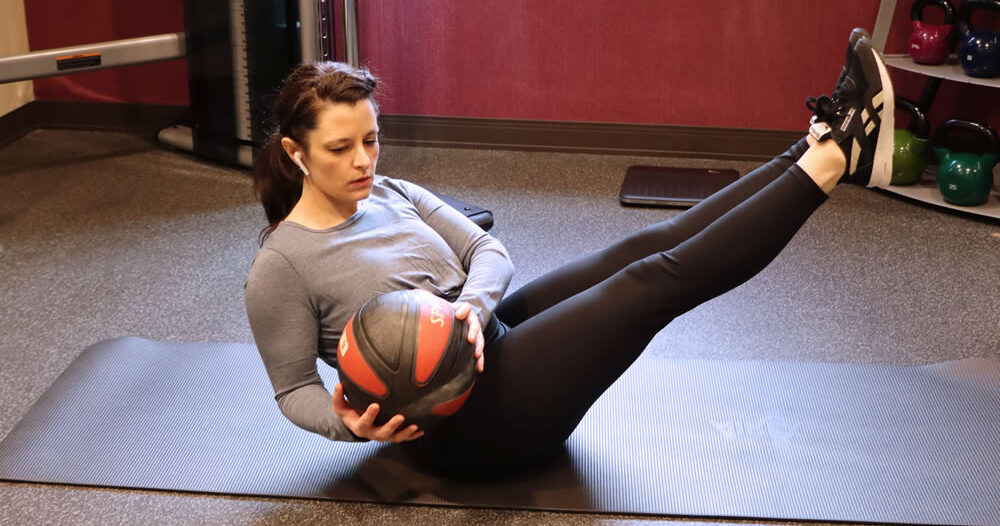If your New Years resolution this year is to improve your mental health, know that it’s definitely possible (and an excellent goal to have!) but you probably won’t have it checked off your list by February. For one thing, big New Years resolutions are always tough. If you’re anything like me, you hit the ground running in January, all energetic and determined, only to lose steam by March, give up by April, and totally forget what the resolution even was by the time December rolls around again.
For something as abstract as mental health, it can be even harder. Psychotherapist Angela Ficken tells SheKnows that big New Year‘s goals often fail due to unrealistic expectations, a lack of patience, all-or-nothing thinking (either you succeed or you fail, with no in between), or overcommitment (not having time or energy to dedicate to your goal). As humans, in fact, we’re just not built to successfully implement sudden, massive changes into our lives. “Our brains are wired to conserve energy and stick to familiar patterns, so when we try to overhaul our lives all at once, it can create resistance and fatigue,” Dr. Scott Lyons, a licensed holistic psychologist, mind-body medicine specialist, and host of The Gently Used Human podcast, tells SheKnows. “It’s not just about willpower, it’s about understanding our brain’s natural tendencies and working with them rather than against them.”
That’s especially true when it comes making mental health changes, because working on your mental health is a lifelong journey, not something that’s going to be “fixed” in a year — and that’s OK. “Progress, not perfection, is the goal,” Dr. Lyons says.
Starting with small shifts and changes can make a bigger impact on your mental health than you’d think. That’s why this year, we’ve rounded up a collection of bite-size, therapist-recommended mental health resolutions you can actually achieve, plus expert tips for making sure you can check off that resolution come next December. Keep reading to get a head start on your year of mental health.
Making New Years resolutions that actually stick
Explore the “why” behind your goal: What’s fueling your desire to achieve this goal, and how does it align with your broader values as a person? “You are more likely to achieve goals that are tied to your values,” registered social worker Michelle Garroway of The Relationship Agency tells SheKnows, “because they are more meaningful and because you have an anchor point that you can reference each time you start to feel the weight of the work you’re doing.”
Set specific, attainable goals: “Define clear, achievable objectives with actionable steps,” Ficken says. Ask yourself what exactly you want to do and how you’ll measure your progress, psychotherapist Kristin Padera tells SheKnows. For example, if you want to make a resolution about improving mental health, you might choose something like “journal about my mental health for five minutes, three times a week.”
Break down your goal into smaller steps: “A goal without a plan is a plan for not achieving your goal,” Garroway says. You might find it helpful to set a broad, long-term goal (“Improve my mental health”) and then break that down into smaller, actionable steps (“find a therapist,” “exercise regularly,” “try meditation“). You might even break those steps down even further (“look up therapists online,” “buy a gym membership,” “find a meditation on YouTube”). As you make the goals smaller and smaller, they start feeling less overwhelming and more like things you can actually schedule into your routine while working in service of your bigger goal. Give yourself bonus points “for making your goals measurable (things like dates or amounts),” Garroway adds.
Try setting a vision instead of a goal: If setting goals still feels like too much, shift your mindset and set a “vision” instead, says licensed social worker Pamela Jackson of Allomothering. A vision, she explains, is “more of a belief about your potential or the quality of life you want to have versus a task you want to complete.” It’s a small but powerful difference. “This can lead to focusing on experiences during your year rather than a checklist as your bottom line,” Jackson tells SheKnows.
Celebrate small wins: It’s crucial to recognize the small steps in between the big, long-term milestones. “Acknowledge and celebrate even the most minor achievements,” Ficken says, because giving yourself positive feedback will help keep you motivated and on track.
Track your progress: “Use journals or apps to monitor your progress,” Ficken says, “and adjust your goals if needed.” This will keep you accountable and make it easier to see your progress. You may also wish to set a time frame, Padera says, like “I want to be journaling three times a week by February,” which gives you the opportunity to either “celebrate your success or adjust your goals if needed.”
Reach out for support: You may feel shy or private about your goals, but sometimes sharing them can do a world of good. Ficken recommends sharing your resolutions with friends or seeking professional guidance from a therapist, if needed. You can talk about challenges that come up, emotions you’re experiencing, and the accomplishments you make along the way.
12 small mental health goals to set this year
Many of us are trying to improve our mental health, but there’s a big difference between trying and actually making it happen. For mental health especially, allow yourself to embrace tiny, positive changes, like the ones below, all recommended by experts. Over time, these small changes will stack up into a noticeable shift in your mindset and emotions.
Try a daily mindfulness practice. Mindfulness helps you stay in the present moment, which can do a lot for your mental health, including helping you relax, improving your self-esteem, and helping you manage stress, anxiety, and depression, according to the National Institutes of Health. Ficken recommends dedicating ” a few minutes daily to mindfulness exercises or meditation,” which she says can “reduce stress and improve focus.”
Make exercise a regular habit. Maybe you’ve made exercise a New Year’s resolution in the past to improve your physical health, but what about mental health? “Exercise is my #1 line of prevention and care when it comes to mental health,” Garroway says. “The benefits of even getting outside for a 10-minute walk or doing some light stretching in your living room are tremendous. It is an act of self-love and compassion to treat your body to movement, in any way that feels good to you. Your nervous system and your mental health will thank you.”
Eat a little healthier. No, we’re not talking about a total overhaul of your diet or completely cutting out all treats. What you eat absolutely affects your mental health, though, with studies showing that eating more fruits and veggies “positively impacts psychological health” and that daily vegetable consumption can reduce symptoms of depression. So if you’re serious about improving your headspace, look a little closer at what you’re putting in your body. Ficken recommends making small changes to your diet, like “incorporating more fruits, vegetables, and whole grains.”
Chip away at screen time. You might find that the more time you spend on social media or browsing the Internet, the less happy you are. Do your best to measure how much time you spend on a screen every day and try to limit it where you can, even if it’s by just a few minutes every day.
Make sleep a priority. Getting good sleep profoundly impacts mental well-being,” Dr. Lyons says — and your physical health improves too. This year, work to “establish a consistent sleep schedule and create a comfortable sleep environment,” Ficken says. This could include shutting down your screens at least an hour before bed, meditating, and sticking to a strict bedtime and wake-up time.
Connect socially. Building your community can help soothe feelings of loneliness and keep you connected to the people you love. Make sure to reach out to friends or family regularly, even if it’s just a quick call or text, and try setting a numerical goal that feels feasible (like once or twice a week) to make it easier to track.
Try practicing gratitude. This can be as simple as writing down two or three things you’re grateful for every day, or speaking them out loud to yourself every morning. Consciously pointing out things you’re grateful for “can shift your focus to the positive aspects of your life,” explains Dr. Lyons. It might feel hard at first, but you’ll notice that this gratitude-minded state becomes more natural the longer you do it.
Set realistic boundaries. Rest is just as important as action when it comes to mental health, so take notice of what activities or people drain your energy and make time for yourself when you need. “Learn to say no when necessary to avoid overcommitting and spreading yourself too thin,” Ficken says.
Practice self-kindness. “Have one moment (3-5mins) in the morning that you spend with your hand over your heart saying kind statements to yourself,” Jackson says. And trust us, if you’ve grown up being critical of yourself and constantly looking for ways to improve, this won’t be as easy as it sounds — it might even feel silly at first. Embrace the awkwardness and discomfort; it’s all a part of changing your mindset and becoming more compassionate.
Pick up on your thought patterns. “Everything starts with awareness,” Garroway says. You might not realize it, but so much of what we think and do “happens on auto-pilot,” she explains. This year, challenge yourself to pay attention to those automatic thoughts. “Do you like what they’re saying? Are they kind, are they true? Would you speak to a friend in the same way you’re speaking to yourself?” If the answer is no, Garroway says, work to “rewrite the thought and speak it out loud to yourself from a place of kindness and compassion.”
Align your decisions to your values. You might think of yourself as a person with specific values, but your actions may not always match up with them. Think about what values truly resonate with you (or take a personal values quiz online), and write them down. Then, start thinking about things as “‘choice by choice’ instead of all or nothing,” Garroway says. In other words, “each time you have a choice or opportunity, you can ask yourself ‘is this choice moving me toward my values, or is it moving me away from my values?’” This, she explains, is an “easy and actionable way to cut through the noise and feel good about the decisions you make.”
Give yourself permission to prioritize yourself. Improving your mental health, even through these small changes, does require energy. This year, allow yourself to dedicate energy to the important goal of improving your mental health, no matter how many other tasks or people are vying for your attention. “Don’t feel that it’s selfish for taking that time if you might be pulled in other directions,” licensed marriage and family therapist Laurie Singer, MS, BCBA, tells SheKnows. “A better you is better for everyone around you.”
With all New Years resolutions but especially with ones about mental health, know that it really is all about the journey. “A big audacious goal is great, but it needs to come with an understanding that there are steps to take along the way, with many micro-achievements and setbacks, and the real enjoyment comes from walking the path,” Garroway explains. And whether you’ve been doing this mental health work for years or are just starting on your journey, get comfortable with the fact that this is a lifelong process — and one that’s truly worth the effort.
For more mental health support, check out our favorite affordable apps:




